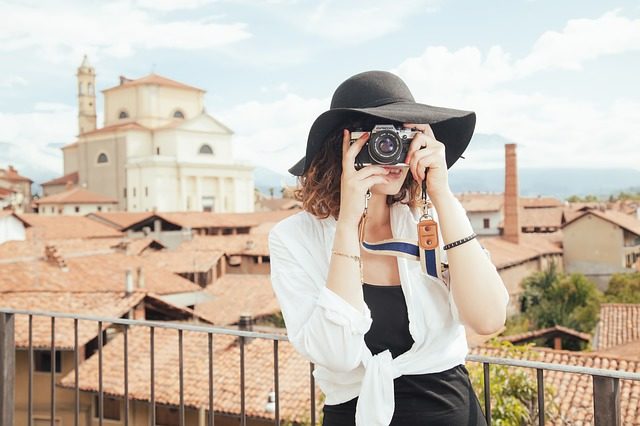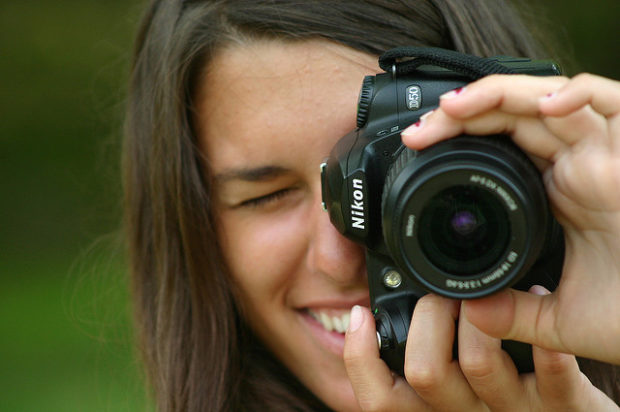10 Photography Tips From A Grumpy Old Professional Photographer

For the aspiring photographers or for the people that just suck at taking photos. I got you! Here’s ten photography tips, from a grumpy old professional photographer.
1. Two eye’s – learn to keep both eyes open (you’ll live a longer life).
No matter what eye you use to look through the view-finder (I use my right eye) make sure you hold the camera so that you can see past your camera body with your other eye. When you are concentrating on what you’re seeing through the lens, your other (open eye) will see the what’s happening outside of the image frame (like a car, animal, tree branch, athlete, etc.) coming at you.
2. When its ugly in the daytime, it’s usually beautiful at night!
Buildings, tree’s, cities, animals, and (yeah) people can use some dark makeup (light). Use a tripod and a long exposure to make your subject go from, “boring, flat and old” to visually entertaining. Hint: make sure there’s a tad bit of light left in the background to create depth perception.
3. Turn the camera vertical.
I heard you, you just said, “duh.” I’ll bet 70% of your images are horizontal. It should be 50 / 50.
4. Shoot straight down!
Everything is interesting when you’re looking down on it. If you want your work to stand out, then do something different. Bring a ladder with you or try it with a model. Gravity is the best makeup artist!

5. Insurance.
If you rent your home or apartment you can get renters insurance. It’s inexpensive and your camera gear is covered. Sorry to be negative, but your camera gear is going to be stolen, broken, or lost at some time in your life. Actually, I’m not sorry. I’ve had my gear stolen from my locked up car, office (with alarm) and home!
6. Don’t shoot alone.
Have an assistant (friend, spouse, or hire someone). Have them help carry the gear, set up, answer strangers’ questions, move props, or go back and get the things you forgot at home. They will also help deter the thieves out there that want to pawn your camera gear (see #5 above).
7. Pay your models (easy for you to say, Mike, but I don’t have any $$$).
Okay, how about giving them the images to use in their portfolios or offering to assist them in whatever they might need. Having a model who is being paid changes everything: communication improves, they show up on time and they don’t complain. I’m not talking about paying them big bucks either, $30-$40 will probably get you some great portfolio images.
8. “F/8 and be there” (It’s an old photo saying).
Have your camera with you set at “f/8” and your shutter speed set at “auto” all the time. Even with auto-focus, you’re going to need some depth of field for quick grab shots. F/8 is the goldilocks of f/stops. Not too little and not too much…just right for a grab shot!

9. Never use f/8…”Wait, What! You just said f/8 and be there.”
That’s for a grab shot (when there’s no time to look at your setting). F/8 is safe, but boring. Too much is in focus or not enough. Selective focus brings the viewer right to where you want them to look. Which is why lens makers sell lens that open up to f/1.2, and photographers pay twice the price just for that extra f/stop opening. If you want your viewer to see everything, (the flowers, grass and the mountains) then set it at f/16 or f/22.
10. Quit looking for photography tips…in fact quit reading this!
Get your butt outside and shoot something.
This guest post was authored by Michael Agliolo
With a master’s degree in photography and a thirty-year career producing images for most of the fortune 500 companies. Michael Agliolo’s vision has evolved from revealing the outside world of images to revealing the inside domain of his imagination. Words have now taken the place of his camera lens, allowing you to experience the impact of his writing internally as if they were a series of photographs.
Michael lives with his wife Nancy in their Northern California home just 10 miles from the worst fire in California history in the town of Paradise. Just as the people of that town have risen from the ashes of devastation, readers of Michael’s books will also be uplifted to see beyond the impossible and into the imaginable.
We hope Michael’s photography tips have inspired you to explore and capture the world. Check out his works or his writings.

